- About Us
- Columns
- Letters
- Cartoons
- The Udder Limits
- Archives
- Ezy Reading Archive
- 2024 Cud Archives
- 2023 Cud Archives
- 2022 Cud Archives
- 2021 Cud Archives
- 2020 Cud Archives
- 2015-2019
- 2010-2014
- 2004-2009
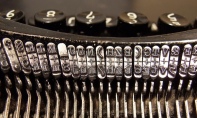 |
Cud Flashes In The Pan |
This month’s theme:
Lucky Charms: A Flash Novel
By David M. Fitzpatrick
“Flash novel”—what a contradiction! A novel is typically 40,000+ words. A novella is typically 7,500 to 40,000. But here follows a story in nine short-short flash chapters at under 4,500 words. With St. Patrick’s Day in March, the theme is luck. Those who are used to spec-fic here will find magic of the realistic type.
Prologue
Melody held the newborn baby girl in her arms as her husband stroked her hair. Medical equipment beeped and booped around her, monitoring her heart rate, blood oxygen levels, and more. There were nurses and a doctor in the doorway, standing back, giving the family room.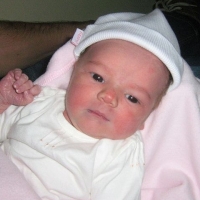
“Her name is Miranda,” Melody said. Her voice was weak, her breathing labored. “You must all give her the love that I won’t be able to.”
Their older children were gathered about her bed. There were six of them, three boys and three girls, aged seven to nineteen. Their faces were worried.
“We know she’ll be all right, my love,” said her husband, John. “With this family, she’ll be so lucky…”
“No—don’t rely on luck!” Melody cried, and the baby fussed in her arms. “Give her love. Give her all that she needs. Give her the love that I’ve given you.”
The beeps and boops accelerated, and Melody’s eyes rolled back in her head. The doctor and nurses rushed through the crowd of children and tried to save her amidst the cries of her family…
Chapter 1:
John and the Four-Leaf Clover
They buried her in a lush, green cemetery. John and his sons wore black suits; his daughters wore black dresses. In stark contrast, baby Miranda was swaddled in white. They cried throughout the service, as the casket was lowered into the ground, and as the caretakers pushed dirt back into the grave.
As John’s children cried around him, he clutched his infant daughter and fought back his tears. He had to be the patriarch. He had to put on a stoic front. It was almost impossible. He watched, numb, as the monuments truck lowered the headstone into place.
But even as it settled into its spot, he spied something right next to it—a bit of green that the stone had barely missed crus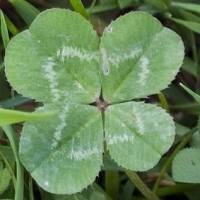
It was a four-leaf clover, the quintessential symbol of luck. He stared at it with open-mouthed awe as the baby squirmed in his arms.
* * *
A week later, John learned of another death in his family: his great-uncle. He hadn’t seen Rupert in thirty years, but when the man had died a month before at age ninety-seven, he’d left no immediate heirs. The lawyers had tracked down his only living relative: John.
John couldn’t believe it. There had been no life insurance on Melody, and the medical bills following her death were killing him. Yet out of the blue had come nearly two million dollars—enough to pay off all his debt and send all seven children to college.
He cried because he missed his wife, because he was happy for the money, and because he felt guilty for being happy.
* * *
“What’s that, Dad?” asked his oldest son, James. At nineteen, he’d just finished his first year of college.
“A four-leaf clover,” John explained, holding it up. He’d had it preserved in plastic so that it would be forever green and intact. He told James of finding the clover and how, the next day, the money had arrived.
“I had this preserved for your baby sister,” John said. “I’ll give it to her when she’s old enough. Your mom didn’t believe in luck, but this sure seemed lucky for me. I hope it brings Miranda luck.”
“That’s beautiful, Dad,” James said, and he cried.
Chapter 2:
James and the Horseshoe
James began his second year of college with hope. He was excited about Fiona. She was a picture of beauty—and looked good in a tight blouse and jeans, too. They’d just been friends during freshman year but had stayed in contact over the summer. There had been some innocent flirting, and the first week back at college he asked her to be his girlfriend.
Her reaction had been unexpected. She liked him very much, she said, but she thought of him as a friend. She didn’t want to jeopardize that friendship, and the summer flirting had been a mistake, and so forth. It hurt, but he accepted it. If he couldn’t have her as a lover, he’d take her friendship.
Two months into the school year, he came out of class one day and something silver on the hall floor caught his attention. He thought it was someone’s lost bracelet, so he stooped to snatch it up.
It was a miniature horseshoe, two inches long. James recalled the folklore: You hung it up in the U shape, so that the luck didn’t spill out, or something. Whatever; he’d turn it in to the office in hopes of reuniting it with its owner.
“James?”
He stood up and turned in a hurry, clutching the little horseshoe, and met Fiona’s gaze. Her blazing blue eyes, framed by blond hair, looked up at him. There was a smile on her heart-shaped face.
“Hi, Fiona,” he said.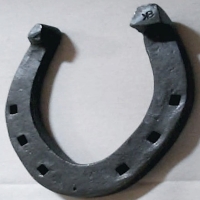
“Hi,” she said. “Look, are you free tonight? I was thinking… we should go for a ride.”
* * *
They drove out of town and parked by the lake, and as soon as they got out of the car, she was all over him. They made out like crazy on the shore, and then made love under the stars on that warm autumn night. When it was over, James lay back on the grass, Fiona wrapped around him, her face buried in his neck.
After catching his breath, he whispered in her ear, “What happened to just being friends?”
Fiona lifted her head to smile at him. “I guess I realized I love you.”
She hugged him tight, and he returned it, but he was thinking about that horseshoe.
* * *
During the holiday break, he caught his father alone. John was watching TV while Miranda cooed in her playpen.
“I have something for Miranda,” James said. “I want it to go with your four-leaf clover.”
He produced the little silver horseshoe, and he told his dad how it had made Fiona his. John listened with a widening smile as he took the horseshoe, clearly energized.
“Family meeting,” he ordered,
After John told the family about the clover that had brought money that saved the family and the horseshoe that had brought James his true love, he showed them an old wooden box.
“This was your mother’s grandmother’s jewelry box,” he said. “It’s a century old. Miranda will never know her mother, but together, we can each contribute a charm to this box—something that, at some point in your life, brought you great luck. When Miranda grows up, may the power of that luck benefit her.”
In her playpen, Miranda squealed with delight.
Chapter 3:
Mary and the Rabbit’s Foot
Mary was just nine when her mother died and ten when her father issued his directive. She didn’t dare tell anyone that she already had her lucky charm: her blue rabbit-foot keychain. She usually hung it off her backpack. She missed her mother and loved her baby sister, but she didn’t want to lose her favorite charm.
She walked home from school with Danielle, her best friend, the next day, and she related the story of the charms. It was early January; snowbanks lined the streets and ice on the sidewalk slowed their travel.
“What’s special about a rabbit’s foot?” Danielle asked, wrinkling her nose as traffic cruised slowly past. The street was slippery.
“It brings good luck,” Mary said, her breath puffing frozen clouds.
A blue van drove by. Mary thought the blue looked just like her rabbit’s foot.
“Tell that to the rabbit!”
“I’ve had it since I was seven,” she said as the blue van turned down the next icy street and drove out of sight. “My mom got it for me at a yard sale. She told me someone killed a bunny and cut off its foot, but I wanted it anyway.”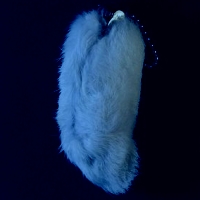
“Has it given you good luck?” Danielle asked.
Mary thought on this. In four years, it had been on her backpack every day for school and on her belt loop or day bag otherwise. It was always with her. “I guess not,” she admitted. “Bad luck, maybe, with Mom dying.”
They crossed the next side street and kept going down the sidewalk, their boots crunching snow and ice.
“I don’t believe in luck,” Danielle said. “Things just happen. Charms can’t change things.”
The blue van drove past from behind them again, and suddenly it pulled up against the curb ahead of them. The girls knew about strangers, so they moved single-file to the far right of the sidewalk as they passed the van. But as they came abreast of the van, the side door slid open and a man burst out and lunged at them. The girls screamed as two big hands grabbed their coats and hauled them toward the van. They screamed like banshees and fought against him. He swore and roared at them, and suddenly Mary realized that he was stepping back into the van and pulling them in with them.
With one last effort, Mary threw her weight back—and he lost his grip. She toppled back into the snow and onto her backpack, even as she saw Danielle, her wide eyes terrified as she screamed, disappear into the van. The door slid closed and the driver floored it—
—and the engine died. Mary scrambled to her feet, screaming, as the driver turned it over again and again, but it wouldn’t start. Mary kept screaming, and approaching cars began pulling over.
The two kidnappers jumped out of the dead van and took off on foot, even as Mary could hear Danielle inside screaming. Motorists exited cars to get her out and to see if Mary was okay, and others took off after the kidnappers. Mary and Danielle soon collided into each other’s arms, bawling, as someone called the police.
The first sirens wailed close when Danielle finally pulled away and reached for Mary’s backpack, her eyes wide. Mary looked to see her friend holding the rabbit’s foot.
“I guess it works,” Danielle said.
Mary nodded, numb. Something out of her control had saved them.
She gave the rabbit’s foot to her father.
Chapter 4:
Jeremy and the Seven
Jeremy was fifteen when his mother died. It was the spring when he was almost seventeen that he began pondering the lucky-charm thing. There was no such thing as luck—just probability, statistics, and coincidence. He played along anyway. The charms thing had brought the family together.
He was a math whiz, so that year he did a project for the STEM fair on probability theory. Since so many in Western cultures believed that the number seven was inherently lucky, he found a yellow plastic number seven in the family playroom to use as a casual hook for the judges before he got into his intense presentation.
Jeremy did well, winning a $500 scholarship for best overall project and a $250 scholarship for best math project. All winners also got Subway gift cards for $25. At the end of the night, after the gymnasium was mostly empty and the remaining students packed up their projects, he noticed a pair of one-dollar bills on the floor beneath his table.
He fished them out and looked around. Everyone was almost gone. “Mr. Garvin,” he called to the science teacher, “someone lost two bucks over here.”
“Your lucky day, James. I’d say you earned that tip tonight.”
Jeremy smiled and pocketed his bonus bucks, and then it hit him.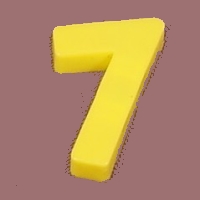
He’d won scholarships for $500 and $250. He’d gotten a $25 gift card. And he’d found $2.
His total take from the night was $777.
He blinked in surprise. The statistical chances of him landing triple-sevens around that project had to be infinitesimal.
“Wow,” he breathed to himself.
It didn’t make him believe in luck, but it did make him impressed with the math behind it all.
* * *
Then Jeremy went to the state STEM fair and won several scholarships totaling $7,000. His grand total was $7,777.
“This can’t be right,” he said. “There’s no way.”
* * *
But when Mr. Benedict, the owner of the store where Jeremy had worked throughout high school, rewarded him with a gift of the man’s own classic car, Jeremy began to think otherwise. He’d babied it since he’d bought it, but hadn’t driven it since he’d gone legally blind.
It was a ’77 Trans Am.
“You’ve been the best kid who’s ever worked here,” Mr. Benedict said as he handed over the keys. “Congratulations, son.”
Jeremy sat in the classic muscle car in awe. Jeremy gripped the shifter knob, an oversized ball with “309” on it.
“What the 309 mean?” he asked.
“My lucky number,” Mr. Benedict said with a chuckle. “I bought this car on March ninth.”
Jeremy felt his mouth sagging open. In his ’77 Trans Am, the number 309 in hexadecimal was 777.
The plastic yellow number seven went into Miranda’s jewelry box.
Chapter 5:
Maggie and the Ladybug
Maggie was thirteen when her mother died. At fifteen, she was aware of the four charms and their stories. She believed in the luck, but she hadn’t yet found one.
So when the talented artist learned that ladybugs were a traditional sign of good luck, she decided that she’d create a unique charm. After all, wouldn’t a charm handmade with a sister’s love certainly be loaded with good luck?
First, Maggie drew ladybugs. Lots of them. None seemed right.
She painted a few next. Too big.
She carved one from wood, painted one on a plastic disc, and molded one out of clay. Nope.
She decided to expand her art skills, and enrolled in a stained-glass course. After three months of weekly classes and learning how to work small, she finally felt ready.
It was a disc three inches across, a beautiful depiction of a ladybug with a bright red shell, accented by its black spots and head. It was thoroughly adorable, and it just had to be brimming with luck!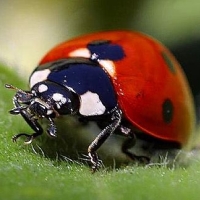
But it had to SHOW that it was lucky. She put it in a small leather pouch to keep it safe in her purse and she carried it with her for a month. Nothing at all wonderful happened. And when accidentally she left her purse on the hood of the car and her father drove off, the purse went flying into the street. Inside the leather pouch, the carefully crafted stained-glass ladybug was a pile of broken glass.
“Forget good luck,” she growled. “It’s just BAD luck.”
* * *
A week later, she was downtown, heading toward a crosswalk when the lights turned and the traffic halted. She broke into a jog to get across the street before it changed. But just as she had bounded her first step into the street, something on the light pole there caught her eye, and she skidded to a stop, spinning to the leaflet-covered metal pole to focus on what it was.
Right then, a speeding car blew through the red light and the crosswalk and, tires squealing, T-boned someone in the intersection. A police car in traffic hit the lights and sirens and brought everything to a stop.
Maggie stood there, mouth agape. If she hadn’t suddenly stopped, she would have been two steps into the street and probably would have been killed.
She spun her head back to the pole. There were ads for the community theater, one for local wrestling, a yard-sale notice, and other things plastered like wallpaper there. Which of them had caught her eye?
Then she saw it. In the white border of a colorful flyer advertising an upcoming downtown art walk was a tiny red-and-black ladybug. It wasn’t moving, and when Maggie reached out and touched it, it fell to the sidewalk. It had lighted there and died, as if waiting for her.
Maggie’s heart swelled. She gently picked up the dead bug and cupped it in her hand. She’d put it in a tiny glass capsule, fill it with a preserving solution, and seal it. It would last forever. This charm would have the power of luck and of Maggie’s own life within it.
Chapter 6:
Jack and the Wishbone
Jack was eleven when his mother died. He was fourteen when he felt like he had to add to Miranda’s charms. He didn’t want to be the last, but he didn’t know what to do.
At Thanksgiving, Millie and Jamie were home from college and his Dad had cooked the biggest turkey ever to accompany a gigantic feast. Jack pigged out on all the turkey, mashed potatoes, stuffing, squash, and cranberry sauce that he could fit in his belly. It was the next day that his father announced that the turkey’s wishbone, having dried overnight, was ready. The old custom was that two people hooked pinky fingers around the stems of the wishbone, made their wishes, and pulled until the wishbone broke. Whoever had the bigger piece would supposedly have his wish come true.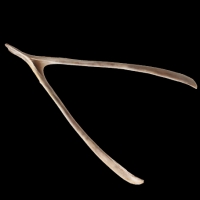
With only one wishbone, so Dad decreed multiple rounds of Rock Paper Scissors Lizard Spock between the six older children to eliminate all but two of them. It was a fancy multiple-elimination round robin, where everyone played everyone, and the most wins advanced to the next round. Everyone had a blast, and Jack had the distinction of winning every single round that he’d played—something that Jeremy decreed really beat the odds.
The final two winners were James and Jack. Jack was a bit discouraged, because James was significantly bigger and stronger. But Jack was a good sport, so they hooked their pinky fingers around the wishbone while the family gathered and cheered them on. Miranda, in her booster seat, squealed with laughter.
On a three-count, they began to pull, and the wishbone hadn’t been as dry as Dad had thought. It was still rubbery and a bit slippery, and as it stretched wide, suddenly James’ side popped right out of his pinky and Jack stumbled backward. Everyone howled with laughter and Dad told them to try again.
But that’s when Jack realized what had happened.
“We can’t!” he cried. “What are the chances that I’d win every single round and get one of the spots? What are the chances that it would slip out of James’ pinky without breaking?”
Everyone looked at him, confused.
“Don’t you see?” he asked, and he pointed at Miranda with the wishbone. “That was incredibly lucky! This isn’t just any wishbone. It didn’t make anyone fall in love or win scholarships or anything like that, but it’s a sign. This lucky wishbone needs to be Miranda’s.”
Everyone oohed and ahhed, and his father hugged him and took the wishbone.
“Luck comes in many forms,” he said. “We’ll take the signs however they come. We’ll dry this wishbone, clean it, and shellac it. It will be your sister’s charm.”
Chapter 7:
Millie and the Dreamcatcher
Millie was seventeen when her mother died. By the time she’d graduated college, she still hadn’t come up with a charm. She was twenty-two and Miranda was six. The summer after earning her degree, she came home and took all of her sisters on a girls’ day out. Maggie had just graduated high school and Mary was going to be a junior. They went out to get their hair done, get manicures, and have lunch at the mall.
Miranda was slow to eat her burger basket in the food court, so Mary and Maggie ran off to a nearby store for a few minutes while Millie stayed with her. That was fine; Miranda just adored being with her biggest sister.
Presently, Miranda said, “How come you haven’t put a lucky charm in my jewelry box?”
“I just haven’t found one yet, sweetie,” Millie replied.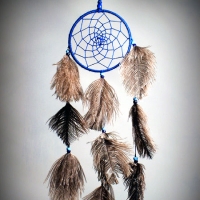
Miranda sipped on her soda, deep in thought. “Do you believe in luck?”
“I believe that things just happen, but sometimes they seem lucky or unlucky.”
“Do you think charms bring you luck?”
Millie didn’t want to ruin Miranda’s innocence, but she had to be honest. “When good things happen through amazing coincidences, I think people sometimes believe that their lucky charms are why,” she said. “But I don’t think so.”
Miranda nodded and ate in silence for a while. Finally, she said, “Did Mom believe in luck?”
“She sure didn’t,” Millie said. “I was there in her hospital room when she died. The last thing she said was that she didn’t want us to rely on luck, but to give you the love that you need.”
“Then why does everyone want me to have lucky charms?”
“I guess they want you to have them to let you know that they love you.”
Miranda furrowed her brow. “If you don’t believe in lucky charms, how can you give me one?”
“I guess I don’t know yet.”
* * *
When they got home, Mary and Maggie piled out in a rush, leaving Millie and Miranda. Millie was unbuckling when Miranda called out from her car seat in the back, “If you don’t believe in luck, why do you have a dreamcatcher?”
It hung from her mirror, a cheap knockoff of Native American crafts. Her college roommate had given it to her. “I guess I just like it.”
“Did you have a good time with your sisters today?”
“Of course I did!”
“I guess you’re pretty lucky to have three sisters and to spend a great day with them,” the little girl said.
Millie spun about and met her gaze. Miranda had a crooked grin and a gleam in her eye. Millie burst out laughing.
She took the dreamcatcher down from the rearview mirror and gave it to her father.
Epilogue
Miranda was eighteen when her father gave her the wooden box containing the seven lucky charms. She kept the box throughout her life.
She married her college boyfriend, Rory. Her father gave her away at her wedding, and he died three years later from pancreatic cancer, after the birth of Miranda’s daughter.
Miranda had a career as a dentist, and Rory one as a lawyer. They had another child, a boy; Darren died in a car accident in high school. She lost Rory to a heart attack when he was fifty-seven. He’d just worked and smoked too much.
Miranda’s siblings all predeceased her, but mostly they lived good lives.
Mary was the unexpected sad story: After her best friend Danielle committed suicide at fourteen, Mary got into drugs in and never looked back. She died at thirty-seven of a heroin overdose, when Miranda was working at her first dentist’s office.
Jack raced cars professionally, was married three times, and had eight kids. He made good money and lived life to the fullest, but one too many crashes on the track paralyzed him from the neck down at forty-two. No one knew who had given him the poison that he wanted, but he died happy with how he’d lived his life. Miranda was about to leave her employer and open her own dental practice, even as Rory was preparing to leave his law firm and open his own practice.
Jeremy became an acclaimed mathematician with two PhDs and taught at several Ivy League schools. He was always a ladies’ man but never married. He died at seventy-five, with two women in his bed and seven respected academic books to his name. Miranda was working on selling her practice and retiring when it happened.
Maggie never got filthy rich as an artist, but she loved what she did. She made a modest living selling her work and teaching art classes, which she did until just days before her death at eighty. She passed at her California home in the forest, surrounded by her artwork and with her wife of forty-eight years by her side. Miranda was retired by then, Rory gone ten years.
James became a best-selling novelist. He married Fiona before that, and she got half of everything in the divorce. He remarried to a woman who was much nicer than Fiona had ever been. He lived to be ninety, dying peacefully in his sleep, when Miranda was seventy-one.
Miranda had always been closest with Millie, and they lived near each other. Millie battled cancer for six years, but at a hundred and one, the end was near. Miranda went to see her.
She looked as young as Miranda, who was eighty-four. Miranda never brought out the lucky charms, but for this visit she brought the dreamcatcher and hung it over the bed where Millie lay.
“You didn’t decide to believe in that stuff, did you?” Millie said with a wrinkled smile.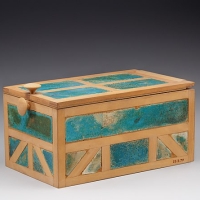
“Certainly not,” Miranda said. “I just wanted it to be here with you.”
“So none of those things brought you luck?” Millie said, a twinkle in her cloudy eyes.
“Well, of course not.”
“Then why have you kept them?”
“They remind me of my family,” Miranda said. “Even if they believed in luck, I know that they only wanted to show me their love.”
“Oh, sweetie, that’s all Mom wanted,” Millie said, a tear trickling down her cheek. “She couldn’t be there to give you love, and she just wanted to be sure that we did.”
“You all did,” Miranda said.
She held her sister’s old hand until Millie fell asleep forever. After the funeral home left with Millie, Miranda took down the dreamcatcher and took her wooden box home.
* * *
She was ninety-nine when it was getting harder to breathe every day. She knew that her luck, so to speak, was running out.
Miranda’s daughter had passed a decade before, but she called her granddaughter, a thirty-year-old corporate executive, and asked her to bring her great-granddaughter to visit.
Melody, named for Miranda’s mother, was eight, and she loved her Great-Grammy Miri. It was tough for Miranda to be out of bed, but she wanted to pass things on to the girl. They sat across from each other, the wooden box on the table between them.
“This box is two hundred years old, and I want you to have it,” she said. “The silly little trinkets within carry with them the most important stories ever. I’ll tell you those stories.”
Melody nodded, eyes wide.
“They’re special things,” Miranda said, “and they’re all about love…”
She lifted open the box, and Melody’s eyes grew wider.
David M. Fitzpatrick is a fiction writer in Maine, USA. His many short stories have appeared in print magazines and anthologies around the world. He writes for a newspaper, writes fiction, edits anthologies, and teaches creative writing. Visit him at www.fitz42.net/writer to learn more.4,484 words
